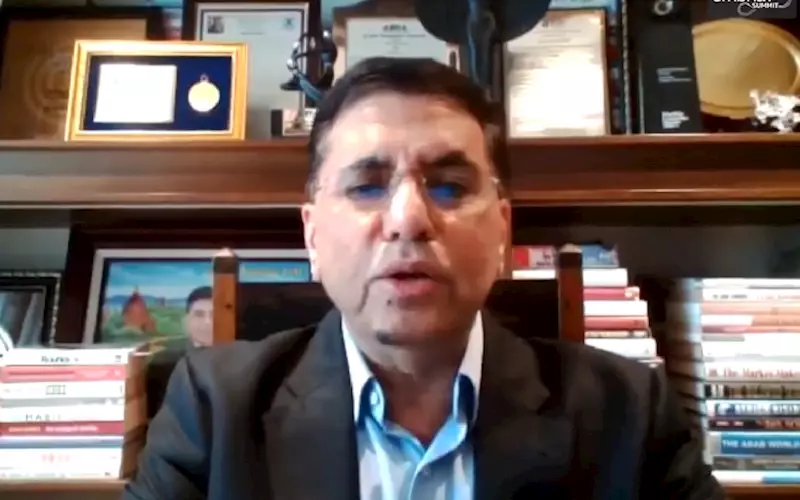Amazon Smbhav: Five mantras from HUL’s Sanjiv Mehta
Hindustan Unilever’s chairman and managing director Sanjiv Mehta’s mantra of what business could do to be effective in an ambiguous and chaotic world during the Amazon Smbhav Summit on Day two
16 Apr 2021 | By Noel D'Cunha
On the second day of Amazon Smbhav summit 2021, Sanjiv Mehta, chairman and managing director of Hindustan Unilever, shed light on how businesses can be effective during the pandemic times.
In his keynote address on how to lead businesses through a global pandemic, Mehta stated five effective ways that businesses could adopt to stay relevant in these troubled times.
He began with: “First, put compassion at the centre of leadership. 2020 has shown that it is urgent and necessary, not just desirable, to humanised leadership. The way in which we have been portraying, promoting and practising leadership for decades as a cocktail of vision, passion and skills, makes leaders ill-prepared to recognise and alleviate human suffering, let alone address the systemic issues that cause and perpetuate. It is time for those who care for good leadership to put compassion at the centre of leadership. People need care, not the battle cry.”
Secondly, he suggested businesses to be adaptive and resilient. “We have realised that even with the best prediction models, we cannot predict the way to a no-risk score. This, therefore, means we must become far more adaptive. The crisis has shown us that adaptable teams retool in a matter of days. On the other hand, a seemingly successful organisation with vast prediction capability paralysed, as the virus spread. During the crisis, many organisations driven by low cost, high efficiencies and capacity utilisation were caught on the wrong foot. These businesses need to determine which part of the value chain do they manage for cost and where do they bill for redundancy so that it is resilient to shocks.”
The third mantra from the FMCG major was to respond to the crisis with speed and agility. “Everyone seems to be speaking about speed and agility, but this is easier said than done. Speed is not simply an attribute of organisation activity tied to clock time. Rather, speed is a complex, performance-enhancing organisation capability that requires a holistic approach to its development and execution. During a crisis, businesses also demonstrate agility, a capability that allows an organisation a pivot to adjust entirely new product domains.”
The fourth mantra was to maximise the digital opportunity. “The pandemic accelerated our nation's digital journey. Many of our fellow citizens moved online for the first time. City children have the first days of online schooling and office goers adapted to working from home, leveraging remote collaboration tools. It moved us from a state of theoretical debate on whether it will work or not to real hands-on experience. We witnessed how enterprises that had adopted digital technologies at the core of the business were less impacted than others. Many SMEs in India are at a low level of digitisation and there is growing awareness of the handicap it creates. Leveraging technology in businesses will have a bigger impact on collective productivity gain that comes from widespread digitisation, both from the transactional efficiencies and from the innovation multiplier that comes on top of a digitised process.”
Mehta’s final tip was to live one’s purpose and values. “Purpose and values should be a guiding star. These are what defines us and drives us in good times and bad. However, exigencies of crisis should not lead to compromising our purpose and values. In fact, they enable the leader to keep a cool head amid chaos. There is a striking parallel between great crisis leaders and parents who must stay firm on values and principles, while still giving the children space to develop – a very delicate balance.”
Mehta further added, “We have the intellect, we have the science. We can create financial capacity and we have a visceral instinct to survive.”
“It is often said that smooth seas do not make skilful sailors. As we fight this crisis, we should look beyond just recovered. As Indians, we should embrace this crisis as an opportunity to craft a different and better future together,” he concluded.











 See All
See All